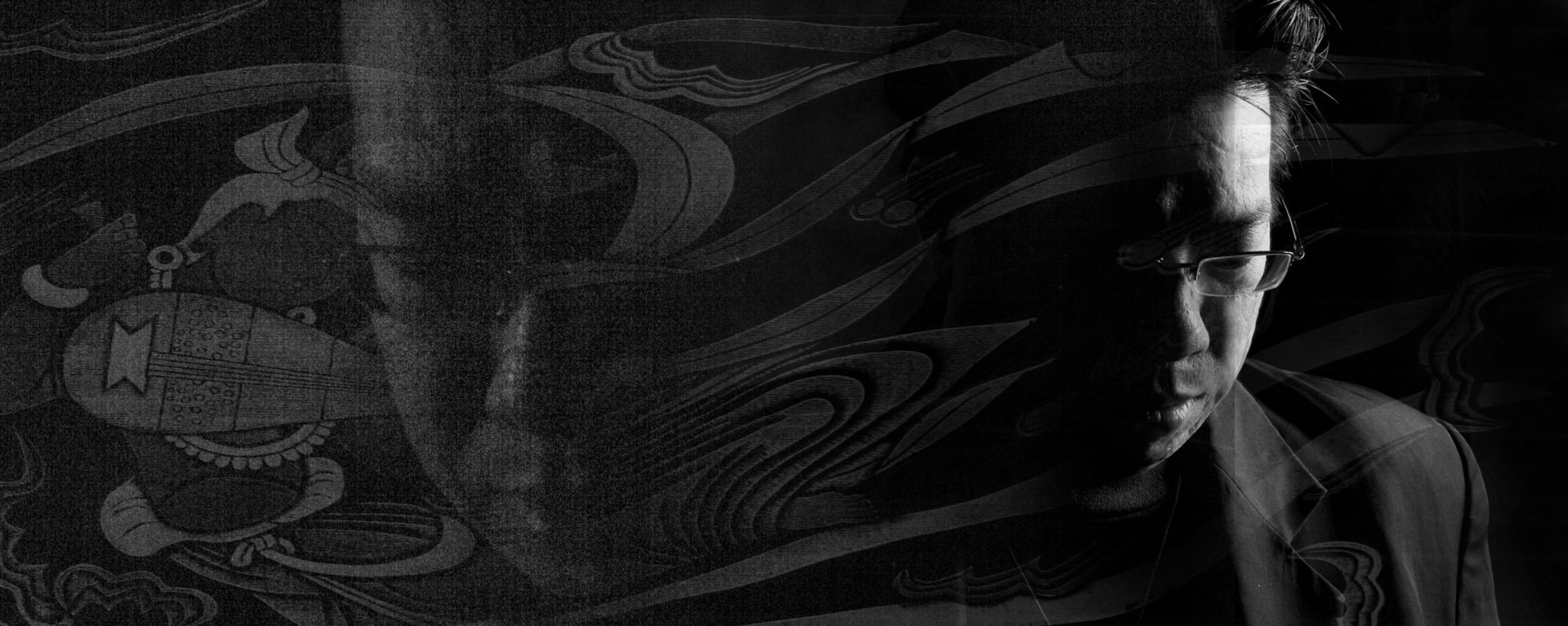Morning reading a very inspiring book “Wabi inspirations” given by guru Axel Vervoordt and Tatsuro Miki san, all beauty is imperfect, incomplete, and impermanent–as transitory as life itself.
晨读我超愛的一本书”Wabi之灵感”,感谢比利时著名设计师收藏家大师Axel Vervoordt和Tatsuro Miki san送我他们的创意无限的书,如他们追求最原始最简意的美学精神, 所有美好事物都是不完美,不完整,不永久,就如在世上过渡的人生!
Author: kychongcom
The Journey Begins
Only wait until a day the Loach grow scales and the horse grow horn, then I will be back home!
…等到滑哥(泥鳅)生鱗, 馬生角..涯就轉來!
新加坡华乐团—新加坡国际华乐作曲大赛2015座谈会之分享
钟启荣博士
大家早上好!我觉得我非常同意之前的讲员和同事们的观点。对于这次比赛尤其Joyce (许美端博士) 做了的分析。同事之间也反映出了南洋风格的一个追求问题和一个探讨问题。我觉得这都是一个重要的课题在发展当中,但是我非常感谢葉聰老师和华乐团“收留”我成为他们其中的一个作曲家团队,就等于邀请我们参与和一起探索南洋風格等问题。我是说有了这个平台,对作曲家的我们可以说是有一个很棒的个人化艺术的展现平台。同时,也需要有个愿意体现作曲家的意愿的音乐平台。如果没有了这个华乐团,没有了葉聰指挥的邀约,这些都是不可能发生的,所以我觉得在乐团在这部分起着一个非常重要的一个过程。华乐团也给我们另一个更重要的方面是采风。专门到马六甲看了土生文化(Peranakan),在那里就可以了解当地的音乐文化。我们还去过泉州南音和客家山歌采風以便更了解当地的文化。我一直建议在我们的教育体系里头能采用這采風的课程,虽然我经常和吳多才博士和其他的作曲同事说起在我们的音乐教育应该有这课程,南艺的前院长朱院长也常提起为什么在音乐教育里面不能有采风的项目呢?也可能在教育的规则上不太能实行。以个人的意愿,像我自己有做过几个音乐活动/音乐节,像葉老师一样,我们提供一个团队,虽不属于一个学院,但是一个集体(Collective)。 我们下乡去采集素材的时候,我们可以运用在我们的创作的过程中。在这过程里面,尊重传统,同时发扬传统。不管是南洋或亚洲也好,这些素材都是我们非常精彩的一个文化遗产。因为在新加坡,很多的老文化已经开始消去,当这文化消去后,你只能到博物馆去,所以这种活着的文化,如果不在当下采集,它再也不能重现了。就好比方言,客家话、闽南话、潮州话,当这语言不在你家里发生的时候,它就是只变成一种回忆,就只能好像听过我奶奶说过这样的话,但是你若真正去体会这些音调的时候 (还有食物),你不能很贴切的运用在你的音乐中,你只能引用(quote)。如此你就不需要在新加坡你也能写,因为只要去图书馆,有音像就可以了。但是我觉得作曲家很多时候以个人本身的艺术体会,如你对客家话掌握的非常好,你的表现张力非常大。我记得周文中老师曾说,你先要是一个“完整”的人就是要有整体的艺术体会,同时要在你的音乐语言要诚实,实实在在表现你的音乐。不管你用什么风格的技法,至少你的音乐体会是非常真诚的,能感动当中的听众。我觉得这是我们作曲家唯一非常重要的一件事情,要真正的知道自己在写什么。为谁而写?为自己还是为自己的艺术理念而继续?当中这南洋的精神才会存在。如你只是从网上采集资料反而没真正切身的体会,我觉得会少了实际经验(hands-on)手感有点虚假的,我觉得创作者需要真正去体会文化现象。我建议大家多多跟葉聰老师和大家同事一起下乡采风。这是我非常愿意看到的事情。谢谢。
Sharing my thought at the Singapore Chinese Orchestra_2015 SICCOC Symposium.
Dr. Chong Kee Yong
Good morning! I totally agree with what the previous presenters and my fellow colleagues have shared. I think Dr Joyce Koh has done an accurate analysis of this competition. Between colleagues, we have also reflected on the problem of pursuing and exploring the Nanyang style. I think this is an important topic that is still developing. I am very grateful to Maestro Yeh and SCO for “taking me in” as a member of their composer team, which to me, is equivalent to inviting us to explore the issue on Nanyang style. This is a fantastic platform as composers get to showcase their individual music style and we have a ‘willing party’ to perform our works. If it had not been SCO and no invitation was extended by Maestro Yeh, all these would not have happened, so I believe the orchestra plays a significant role in the process. More importantly, SCO has given us another important opportunity – folk songs collection trips. We have been to Malacca to see Peranakan culture, and we get a better understanding of the local music culture. We also went to Quanzhou to collect Nanyin (南音) and Hakka folk songs. I have always shared my suggestion of including folk songs collection trips in our teaching system with Dr Goh, fellow colleagues and even with Mr Choo, NAFA’s former Principal; however, this may not be feasible as it does not comply with education regulations. Personally, I have curated a few musical activities and music festivals. Like what Maestro Yeh did, we formed a collective that is not institution-specific. We went to the countryside to collect materials and we could make use of these resources in our compositions. During the course, we respect and carry forward the traditions. Whether or not it is in Nanyang or Asia, these materials form part of our exciting cultural heritage. In Singapore, many old cultures are fading away, and when they completely disappear, you would only see them in the museums. So if living cultures are not collected now, they may not re-appear in time to come. Take the example of dialects – Hakka, Hokkien, Teochew – if the dialects are not spoken at home, it will just become part of your memory and is a language only your grandma speaks. If you had attempted to experience the language or food and then tried including that flavour in your music, you might not be able to use it appropriately, as you could only quote. If that scenario arises, you do not even need to be in Singapore to compose the music, as all you need to do is to go to the library and find the audio visual. However, as a composer, if you have real personal experiences, say, you master the Hakka dialect very well, it would perhaps help you stretch your composing skill. I remember Mr Chong Wen-Chung once said, “You need to have an all-rounded experience in art to be the “complete” person, and your music language needs to be honest and real. No matter which style you adopt, at least the music is sincere and touches your audience.” I think this is a crucial issue to us as composers. We need to know what we are writing and, for who? Are we composing simply for ourselves or pursuing our artistic concept where Nanyang spirit may exist? If you just extract resources from the internet without personal experience, then I find it superficial as it lacks the hands-on feel. All composers should have first-hand experience of the cultural phenomenon. I suggest everyone to find opportunity to join Maestro Yeh and fellow colleagues to collect folk songs at the countryside. This is something I really wish to see. Thank you.




